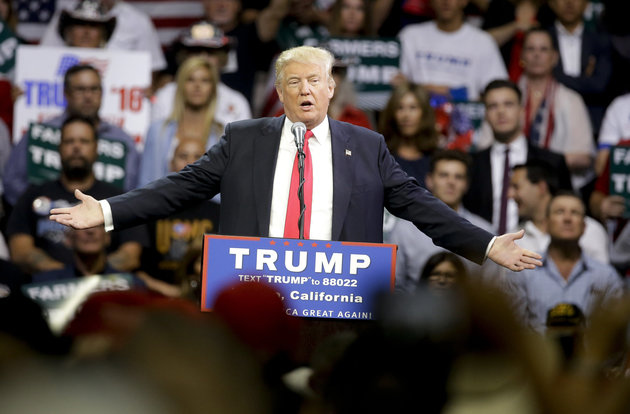WASHINGTON (Reuters) - U.S. Asia experts who served in past Republican administrations said on Monday they would back Hillary Clinton in the presidential race as a Donald Trump presidency would lead to “ruinous marginalization” for the United States in the region.
In an open letter, the eight former senior officials said that with global strategic competition growing, including from China, it was “absolutely the wrong time to elect an unstable, ill-prepared amateur with no vision or foresight to meet the manifold challenges of the 21st century.”

They said the Republican nominee offered “only bluster or preposterous panaceas” for Asia that would “wreck our country’s credibility, economy, and leadership in very short order.”
The signatories to the letter included Michael Green, who served as President George W. Bush’s top Asia adviser at the White House, James Clad, a former deputy assistant secretary of defense, and Patrick Cronin, a former senior official at the U.S. Agency for International Development.
Should Trump get the chance to put his “nostrums” into practice, Asian countries would be forced to shift towards states challenging the United States, most notably China, and some might seek security through nuclear weapons, the former officials said.
“In short, if the Trump brand ... becomes America’s brand, we can expect ruinous marginalization in Asia and unwanted compliance with rules which the Chinese and other challengers set,” they said.
Their letter was the latest repudiation of Trump’s candidacy by Republican national security specialists.
Last week, 50 former Republican national security officials, including a former CIA director, called Trump unqualified to lead and said he would be “the most reckless president in American history.”
Trump responded to that statement by deriding the signatories as members of “the failed Washington elite” who “deserve the blame for making the world such a dangerous place.”
Trump has caused alarm in Asia and beyond by saying he would consider letting Japan and South Korea build their own nuclear weapons, rather than have them relying on the United States for protection against North Korea and China.
While making U.S. allies anxious, Trump has also irritated Beijing with his comments, such as by comparing the U.S. trade deficit with China to rape. One Chinese state newspaper equated him to Hitler.
At the same time, Beijing also sees Trump as a businessmen with whom it could probably negotiate and may also hope he would be less tough on human rights than Clinton.


